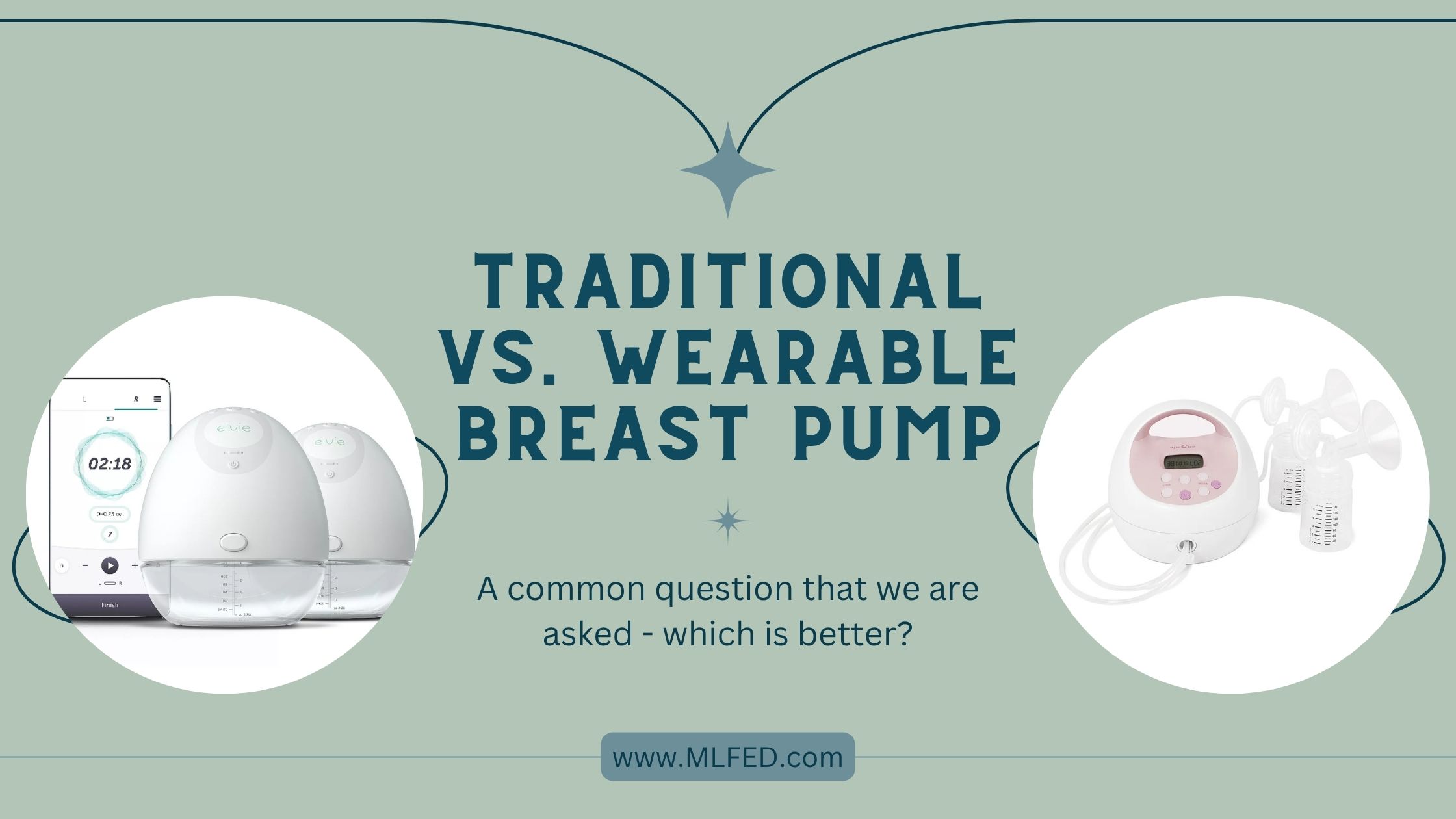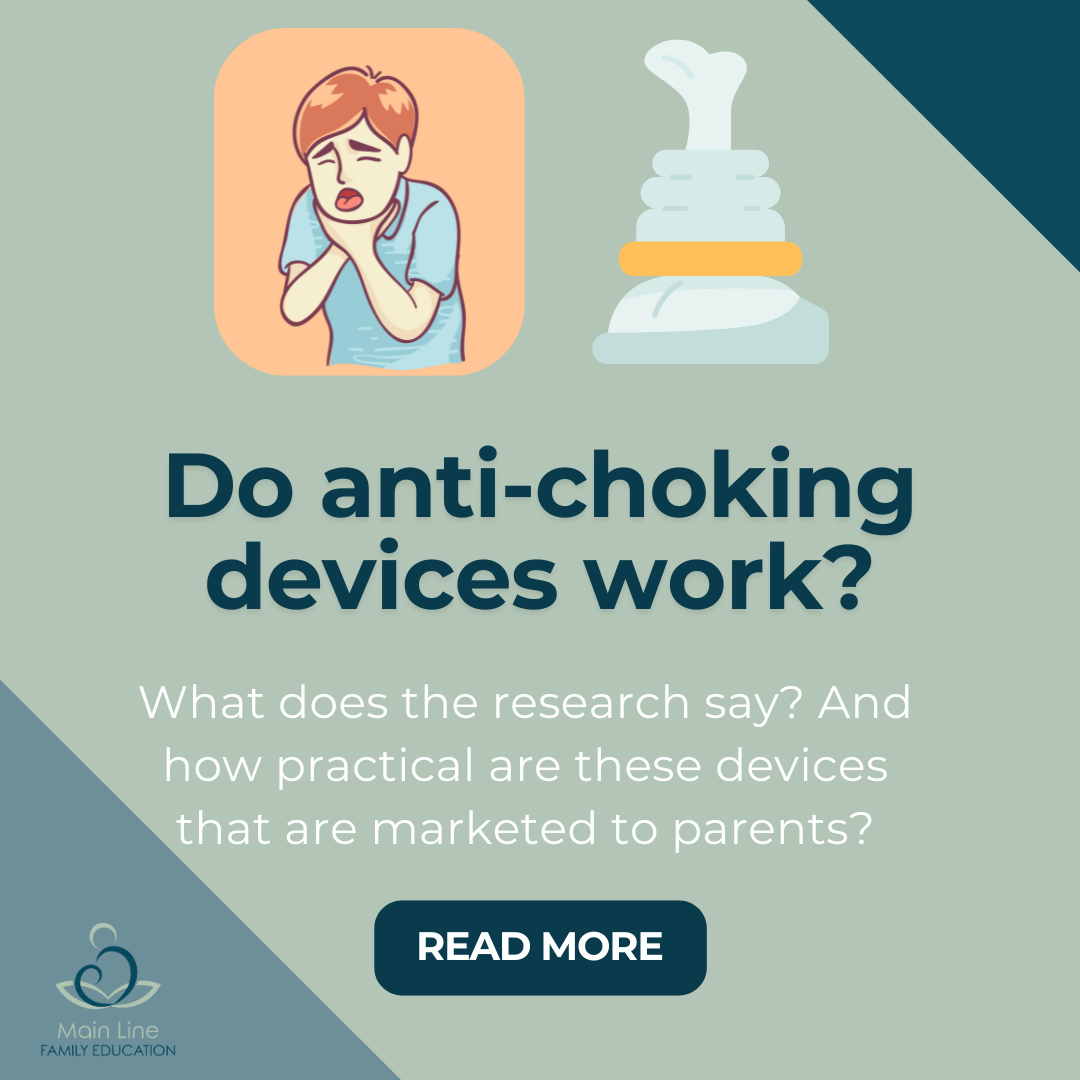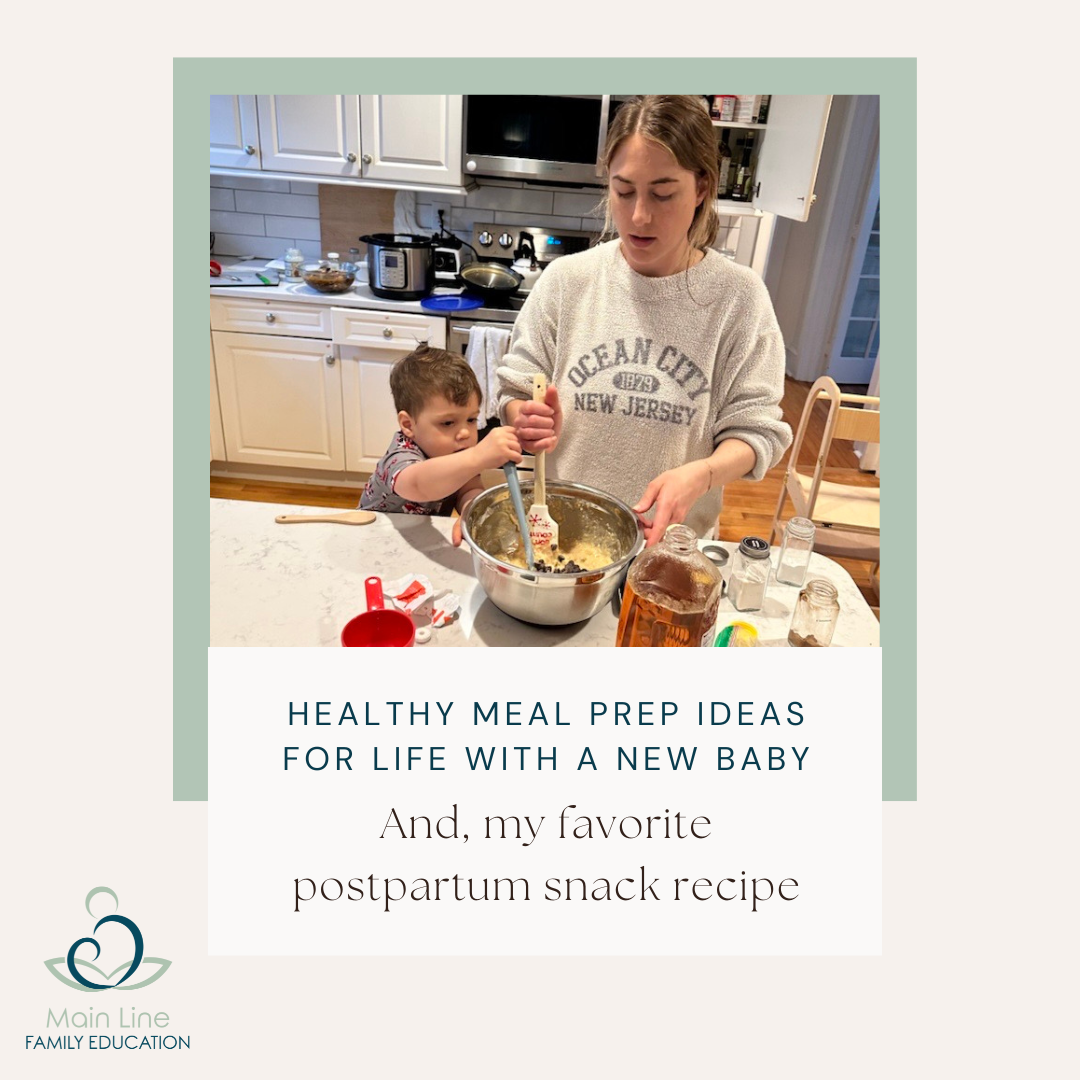Choosing the Right Pump: Traditional vs. Wearable

There are so many decisions to make and products to choose from when it comes to pregnancy. And one common thing that we are always asked about is breast pumps. With so many options out there and various types to choose from, it can feel overwhelming. Parents-to-be want to know: “Which is better, a traditional pump or a wearable pump?” We turned to lactation expert Brooke Azevedo, B.S., International Board Certified Lactation Consultant (IBCLC), to break down the pros and cons of these two types of pumps.
Traditional Pumps (like Spectra, Medela, etc.)
Pros:
- Stronger motor = better milk removal
- Best for establishing and maintaining supply
- Shorter pumping sessions
- More affordable and often covered by insurance
- Multi-user safe (great for future use or lending within your household)
Cons:
- Less portable (need to be plugged in or stay by the pump base)
- Bulkier design
- Typically need to stay in one place while pumping
Wearable Pumps (like Elvie, Willow, MomCozy, etc.)
Pros:
- Ultra-portable — pump while you move!
- Discreet and lightweight
- Great for multitasking on busy days
Cons:
- Generally express less milk compared to traditional pumps
- More expensive and often not covered by insurance
- Harder to achieve correct flange fit due to design
- Smaller motor = less suction power
- Potential for supply decrease over time
- Risk of leaking if not properly centered
Our Recommendation
For most people, especially in the early days, we recommend starting with a traditional pump. It’s powerful, reliable, and great for building supply.
That said, wearable pumps have their place! For busy professionals — think doctors, nurses, teachers, or anyone who struggles to carve out pumping time — a wearable pump is a fantastic tool. Even if output is a bit lower, some milk expression is always better than none.
And don’t forget that HSA/FSA money can be used on breastmilk supplies, including a breast pump. One thing we always recommend to friends is to get a traditional pump through insurance to start and to wait to see how breastfeeding/pumping is going before investing in something additional. You’ll also have a better idea of what’s needed based on how your journey is going.
Interested in learning more about breastfeeding before baby arrives? Want personalized guidance on choosing the best pump for your needs? Join our Breastfeeding 101 class with Brooke – in-person in Devon, PA or on-demand!







